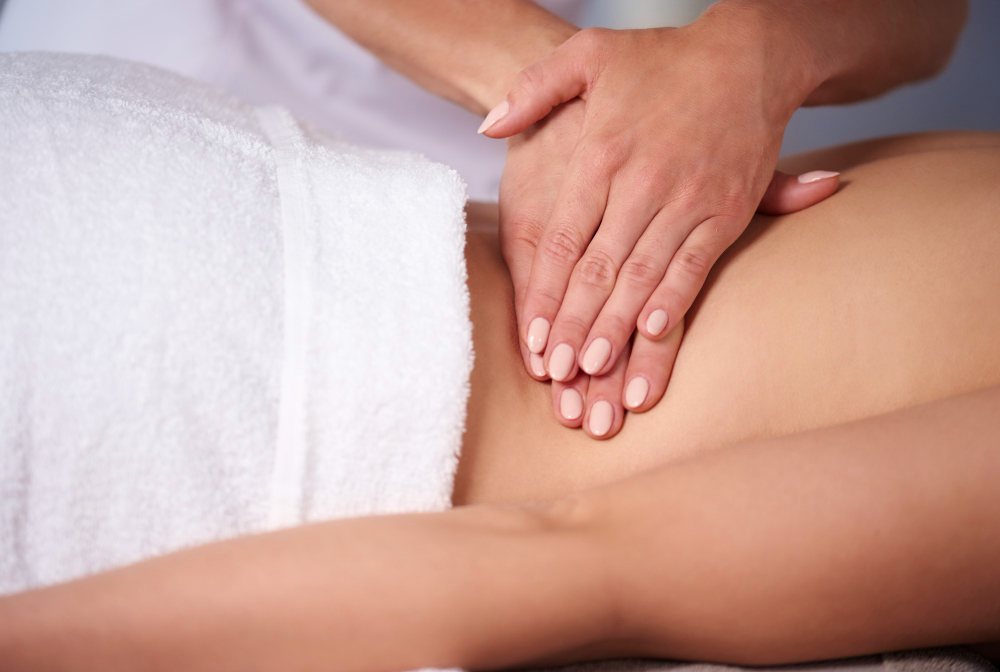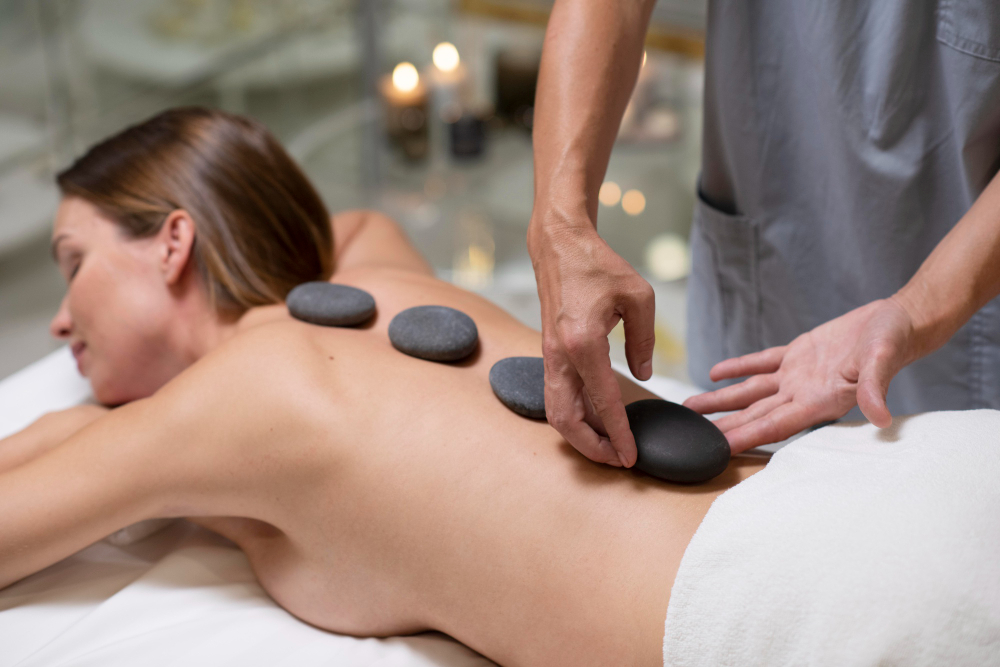Prenatal massage is a type of therapeutic massage therapy specifically designed for expectant mothers, catering to their changing bodies and unique needs during pregnancy. As awareness about the benefits of prenatal massage increases, more and more expectant mothers are seeking this holistic approach to support their journey through pregnancy and prepare for childbirth.
During pregnancy, a woman’s body goes through significant changes, leading to various discomforts and increased stress levels. Prenatal massage offers numerous advantages for both the mother and the developing baby, ranging from physical relief to emotional support, making it a valuable addition to a healthy pregnancy routine.
The Benefits of Prenatal Massage
Prenatal massage can be an effective complementary therapy to help alleviate pregnancy-related issues and promote overall well-being. It provides a nurturing experience that not only addresses physical discomforts but also supports emotional and mental health during this transformative period.
- Relief from Common Pregnancy Discomforts
- Alleviates back pain, leg cramps, and muscle aches
- Reduces swelling and improves circulation
- Helps with headaches and insomnia
- Emotional and Mental Well-being
- Reduces stress, anxiety, and depression
- Promotes relaxation and better sleep
- Boosts mood and emotional stability
- Preparation for Labor and Delivery
- Improves body awareness and flexibility
- Helps regulate hormone levels
- May shorten labor duration
- Bonding with the Baby
- Enhances the connection between mother and baby
- Promotes healthy fetal development

Conditions When Prenatal Massage is Recommended:
- Back pain and muscle aches
- Prenatal massage can help alleviate the increased strain and discomfort on the back, hips, and muscles due to weight gain and postural changes.
- Swelling and fluid retention
- The massage techniques can improve circulation and lymphatic drainage, reducing swelling in the legs, ankles, and feet.
- Stress, anxiety, and depression
- Prenatal massage promotes relaxation and can help manage stress, anxiety, and symptoms of depression commonly experienced during pregnancy.
- Preparation for labor
- Massage therapy can improve flexibility, body awareness, and regulate hormones, potentially helping with the labor process.
- Gestational diabetes or high blood pressure
- With approval from a healthcare provider, prenatal massage may help manage these conditions by improving circulation and reducing stress.
- Sciatic nerve pain
- Massage techniques can help alleviate pressure on the sciatic nerve, relieving radiating pain down the legs.
When Not to Get a Prenatal Massage
It’s crucial to consult with your healthcare provider before getting a prenatal massage, as they can assess your individual circumstances and provide personalized advice. They may advise against massage or recommend modifications based on your specific condition or stage of pregnancy.
- During the First Trimester (unless approved by a health care professional)
- The first trimester is a delicate period when the risk of miscarriage is higher.
- Certain massage techniques and pressure points may potentially cause uterine contractions or dislodge the embryo in the early stages.
- Most experts recommend waiting until after the first trimester to minimize any risks, unless specifically approved by your Health Care Providers.
- If You Have Certain High-Risk Conditions
- Preeclampsia or pregnancy-induced hypertension (high blood pressure)
- Massage may interfere with medication or further increase blood pressure.
- Placental problems (placenta previa or placental abruption)
- Massage may dislodge or separate the placenta, causing bleeding.
- Persistent vaginal bleeding or spotting
- Massage may exacerbate the bleeding or cause complications.
- Preeclampsia or pregnancy-induced hypertension (high blood pressure)
- If You Have Certain Pregnancy Complications
- Pre-term labor or threatened miscarriage
- Massage may stimulate uterine contractions, increasing the risk of premature delivery.
- Recent injury or surgery
- Massage may interfere with healing or cause further complications.
- Severe morning sickness or dehydration
- Massage may worsen nausea or cause dizziness due to dehydration.
- Pre-term labor or threatened miscarriage
- Other Contraindications
- Certain medical conditions (e.g., blood clotting disorders, infectious diseases)
- Prescribed bed rest or activity restrictions
- Allergy or sensitivity to massage oils or lotions

What to Expect During a Prenatal Massage?
- Consultation and Screening
- The massage therapist will likely begin with a consultation to gather information about your pregnancy, due date, and any specific concerns or discomforts you may be experiencing.
- They will also ask about any complications or medical conditions to ensure it is safe to proceed with the massage.
- Positioning and Comfort
- Prenatal massage is typically performed with the client lying on their side, supported by specialized body pillows or cushions.
- The massage therapist may also use a pregnancy massage table or pad with a cutout for the belly to allow for comfortable positioning as the pregnancy progresses.
- Massage Techniques
- Swedish massage techniques, such as effleurage (long, gliding strokes), petrissage (kneading), and friction, are commonly used during prenatal massage.
- Specific techniques may be employed to target areas of discomfort, such as the lower back, hips, and legs.
- Pressure will be adjusted accordingly, avoiding deep tissue work or pressure on certain areas like the ankles or calves, which may cause discomfort or swelling.
- Focus Areas
- Particular attention is often given to the back, shoulders, neck, and legs, as these areas tend to experience increased strain and tension during pregnancy.
- The therapist may also work on the arms, hands, and feet to improve circulation and reduce swelling.
- Communication and Customization
- Throughout the session, the therapist will check in with you regarding pressure, comfort levels, and any areas that need more or less attention.
- Feel free to communicate any discomfort or preferences, as the massage can be customized to meet your needs.
- Relaxation and Aftercare
- Prenatal massage is designed to be a relaxing and nurturing experience, promoting a sense of wellbeing for both the mother and the baby.
- After the massage, it’s important to stay hydrated and avoid any strenuous activities. Some mild stretching or gentle movements may be recommended.
Choose the top massage therapy clinic in Pickering and Milton, Ontario
If you’re an expectant mother in Milton or Pickering, Ontario; don’t miss out on the countless benefits of prenatal massage. This nurturing and therapeutic practice can provide much-needed relief from the aches, pains, and discomforts that often accompany pregnancy. From alleviating back pain and reducing swelling to promoting relaxation and emotional well-being, prenatal massage offers a holistic approach to supporting a healthier and more comfortable pregnancy journey.
At Pro Fusion Rehab, our team of certified and experienced prenatal massage therapists is dedicated to providing exceptional care and personalized attention to every mother-to-be. Our therapists are well-versed in various massage techniques, including Swedish, deep tissue, and specialty prenatal modalities, ensuring you receive the best possible care. Contact us today to schedule your appointment and experience the difference our expert care can make during this special time. Give yourself and your baby the gift of relaxation, relief, and nurturing touch – you both deserve it.
References:
- Field, T. (2019). Pregnancy and labor massage. Expert Review of Obstetrics & Gynecology, 14(2), 73-83. https://doi.org/10.1080/17474124.2019.1579633
- Hausner, H., Waffarn, F., Erskine, J., & Glover, V. (2022). Massage therapy for reducing antenatal depression and anxiety: A feasibility randomized controlled trial. Journal of Affective Disorders, 306, 137-146. https://doi.org/10.1016/j.jad.2022.03.029
- Janssen, P. A., Shroff, F. M., & Jaspar, P. (2012). Massage therapy and labor outcomes: A randomized controlled trial. International Journal of Therapeutic Massage & Bodywork, 5(4), 15-21. https://doi.org/10.3822/ijtmb.v5i4.178
- Leppert, P. C., & Menard, J. K. (2021). Massage therapy for prenatal and perinatal health: A review of the literature. Journal of Midwifery & Women’s Health, 66(5), 635-650. https://doi.org/10.1111/jmwh.13257
